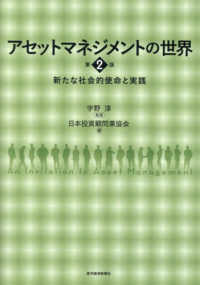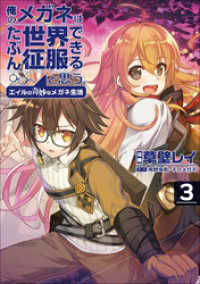- ホーム
- > 洋書
- > 英文書
- > Literary Criticism
Full Description
Rulin waishi (The Unofficial History of the Scholars) is more than a landmark in the history of the Chinese novel. This eighteenth-century work, which was deeply embedded in the intellectual and literary discourses of its time, challenges the reader to come to grips with the mid-Qing debates over ritual and ritualism, and the construction of history, narrative, and lyricism. Wu Jingzi's (1701-54) ironic portrait of literati life was unprecedented in its comprehensive treatment of the degeneration of mores, the predicaments of official institutions, and the Confucian elite's futile struggle to reassert moral and cultural authority. Like many of his fellow literati, Wu found the vernacular novel an expressive and malleable medium for discussing elite concerns.
Through a close reading of Rulin waishi, Shang Wei seeks to answer such questions as What accounts for the literati's enthusiasm for writing and reading novels? Does this enthusiasm bespeak a conscious effort to develop a community of critical discourse outside the official world? Why did literati authors eschew publication? What are the bases for their social and cultural criticisms? How far do their criticisms go, given the authors' alleged Confucianism? And if literati authors were interested solely in recovering moral and cultural hegemony for their class, how can we explain the irony found in their works?








